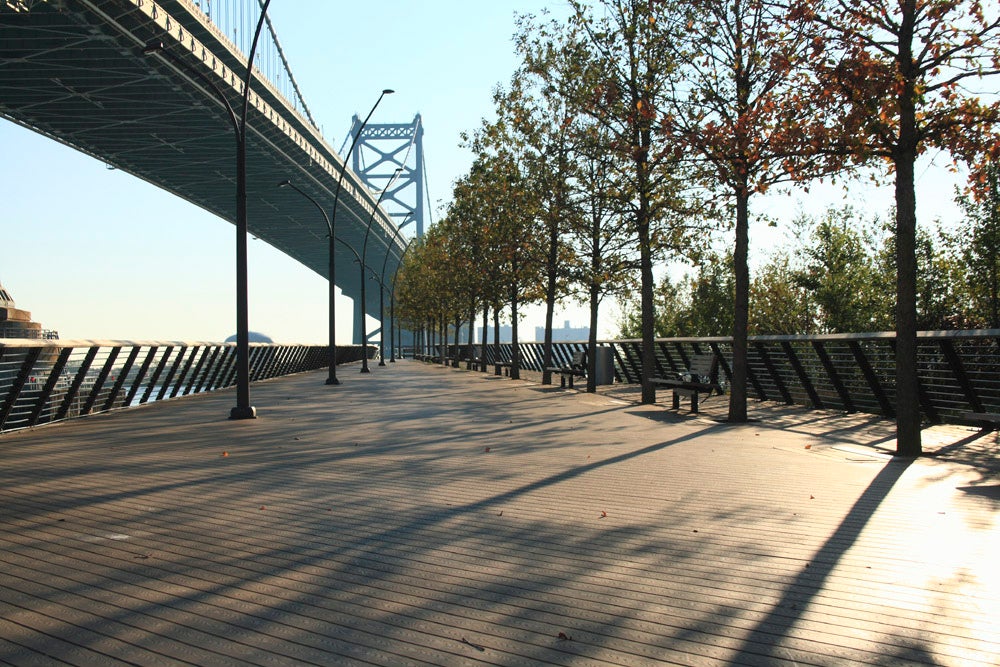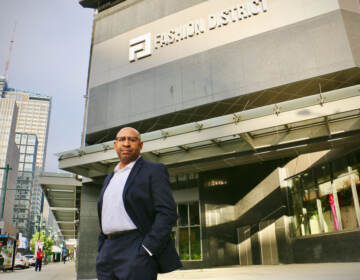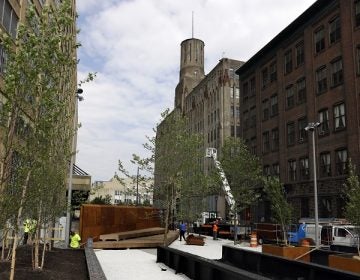Philadelphia’s New Day

I got up before dawn on Wednesday to visit Harvard’s Graduate School of Design for a panel called The Philadelphia Story: Planning, Politics and Reality. Inquirer architecture critic Inga Saffron* brought Mayor Michael Nutter and his Deputy Mayor for Economic Development, Alan Greenberger; Executive Director of PennPraxis, Harris Steinberg; and the Philadelphia Water Department’s Manager of Policy and Strategic Initiatives, Glen Abrams to Harvard to discuss Philadelphia’s planning revival. Saffron co-organized and moderated the panel as part of her Loeb fellowship at Harvard this year.
“The Philadelphia Story” was a Boston roadshow for Philly’s planning rebirth, hitting on familiar storylines of reform politics, professional planning, and civic participation. But sitting in a small auditorium at Harvard, I was reminded of exactly how far Philadelphia has come in only a few years.
We’ve watched the sun rise on a new day for planning in Philadelphia.
It may be easy to lose sight of Philadelphia’s changes as we follow (or wage) battles over particular projects or plans. But our debates, over zoning reform for example, are evidence of Philadelphia’s seismic shift in its planning perspective. We actually make plans (again), based on serious public policy and public engagement, as opposed to letting the future just happen.
Cynics will argue that planning is not doing. To that I’d say, planning is prelude.
Before a small audience at Harvard, Mayor Nutter and Alan Greenberger recounted ways the current administration has changed the city’s planning culture, from reinvigorating the formerly anemic Philadelphia City Planning Commission and continuing the Central Delaware River Waterfront planning effort started under Mayor John Street, to reforming Philly’s outdated zoning code (fingers crossed) to the nationally recognized Green Cities, Clean Waters plan.
Harris Steinberg discussed how PennPraxis** has helped shift Philadelphia’s planning climate by facilitating meaningful civic dialogue about design issues, such as the citizen-driven Civic Vision for the Central Delaware waterfront. And Glen Abrams helped ground the discussion by explaining Philadelphia’s ambitious green infrastructure plan to manage stormwater while beautifying neighborhoods through greening projects.
It was not a revelatory conversation; we know what is on Philly’s planning agenda. But it brought into clear focus something subtler and bolder that is happening every day in our city: Philadelphia wants to become a high-functioning government that takes planning seriously. That process is neither neat nor speedy, but it’s happening.
Introducing Mayor Michael Nutter, Inga Saffron called him our city’s “first modern mayor, in the sense that he has left behind patronage politics and championed policy-driven governance.”
Getting excited about having a government that works better may seem like a low bar for America’s fifth largest city to set, but it’s no small achievement.
In Philadelphia professional planning is nudging patronage politics out of the way when it comes to development. Transactional planning projects appear to be on the wane, in part because more people are watching. (Though, look no further than the last week’s City Council hearings to see that District Councilmembers still do find a way to do favors.)
It wasn’t so long ago that Philadelphia’s idea of planning was brazenly crooked. Saffron recounted the “contest” to redevelop Penn’s Landing, in which included potential developers funding then-mayor John Street’s 2004 reelection through the campaign contributions, and ended with an indictment on corruption charges. Contrast that approach to planning with the Civic Vision for the Central Delaware spearheaded by PennPraxis only a couple years later, in which thousands of Philadelphians participated in a different kind of waterfront planning process, shaped by shared public values. The distance of three years feels a world apart.
Until recently, Philadelphia was left to wallow in a morass of pay-to-play politics that drove development with no vision or plan to guide public investments or decision-making. The planning commission was feeble, and the mainstream media did not cover city planning or development processes in any meaningful way.
In that void, corruption grew but our city didn’t. As Alan Greenberger pointed out, the most recent real estate boom left Philadelphia with little new development to show for itself. Greenberger argues that by writing a new comprehensive plan and reforming our zoning code Philadelphia will be more able to compete with other cities for significant investment and make better choices about development proposals based on a long-term citywide vision as opposed to nakedly developer-driven agendas.
Harris Steinberg noted when the waterfront civic visioning process was underway, “there was this sense that perhaps things could be different here.” We could do better and the public was pushing the needle of reform faster than government was.
By the time Mayor Nutter was first elected, reform was in the air. Greenberger recalled sensing that Philadelphia was on the brink of a “massive change cycle, where the culture changes.” He remembers thinking, “We were due.”
Philadelphia is slowly changing, thanks to a perfect storm of political will and an empowered professional planning commission, but also a change in us. For our part I think Philadelphians are learning to expect more from planners and politicians because we’re starting to see things work a little differently. It’s still early yet, but the signs are there.
“I think place matters,” Mayor Nutter told me, explaining why planning stays on a front burner, even as Philadelphia struggles with many other large-scale urban problems. Creating new public amenities like the Race Street Pier or efforts to green schoolyards aren’t merely window-dressing projects. Rather, the Nutter administration connects better planning and smarter government to improving public health, enhancing safety, creating economic opportunity, and improving the quality of life in our neighborhoods.
I’m not so naive as to suggest that Philadelphia’s problems will be neatly ironed out by some good plans and we have nothing left to worry about – far from it. Plans are one thing, and action takes sustained willpower, time, energy, and resources. Now comes the heavy lifting.
The more Philadelphians see things change for the better and grow accustomed to positive outcomes, the more I think we will expect our city government to be high functioning and transparent as we confront our thorniest planning problems. That requires us to stay engaged. We are in the early planning stages for a different, renewed Philadelphia, and it’s up to all of us to shape the course of this new day.
———
*See Inga Saffron’s Changing Skyline column about the panel here.
** Eyes on the Street was launched by PlanPhilly, an independent news gathering entity affiliated with PennPraxis.
WHYY is your source for fact-based, in-depth journalism and information. As a nonprofit organization, we rely on financial support from readers like you. Please give today.







